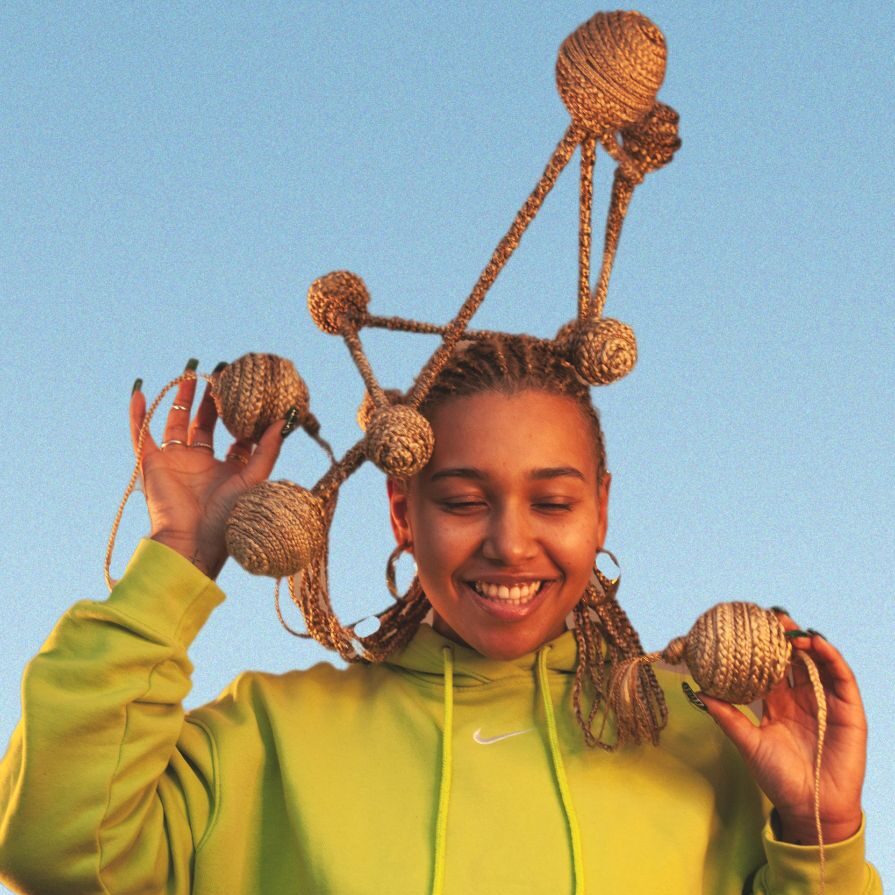Inspace is thrilled to share Bridging Responsible AI Divides (BRAID) programme announcement of the selection of seven outstanding UK-based artists for their commissioning project, aimed at exploring and enriching the responsible AI ecosystem through artistic expression, and to be premiered at Inspace for the 2025 Edinburgh Art Festival.
This initiative, part of BRAID’s ongoing efforts to integrate the arts and humanities with the uptake of AI across our society, focuses on art’s ability to critically engage audiences in thinking about responsibility in AI usage and developments. The artists will not only create artworks but also participate in programmed activities developed to engage our network of stakeholders and audiences. Congratulations to the selected artists.
Selected artists
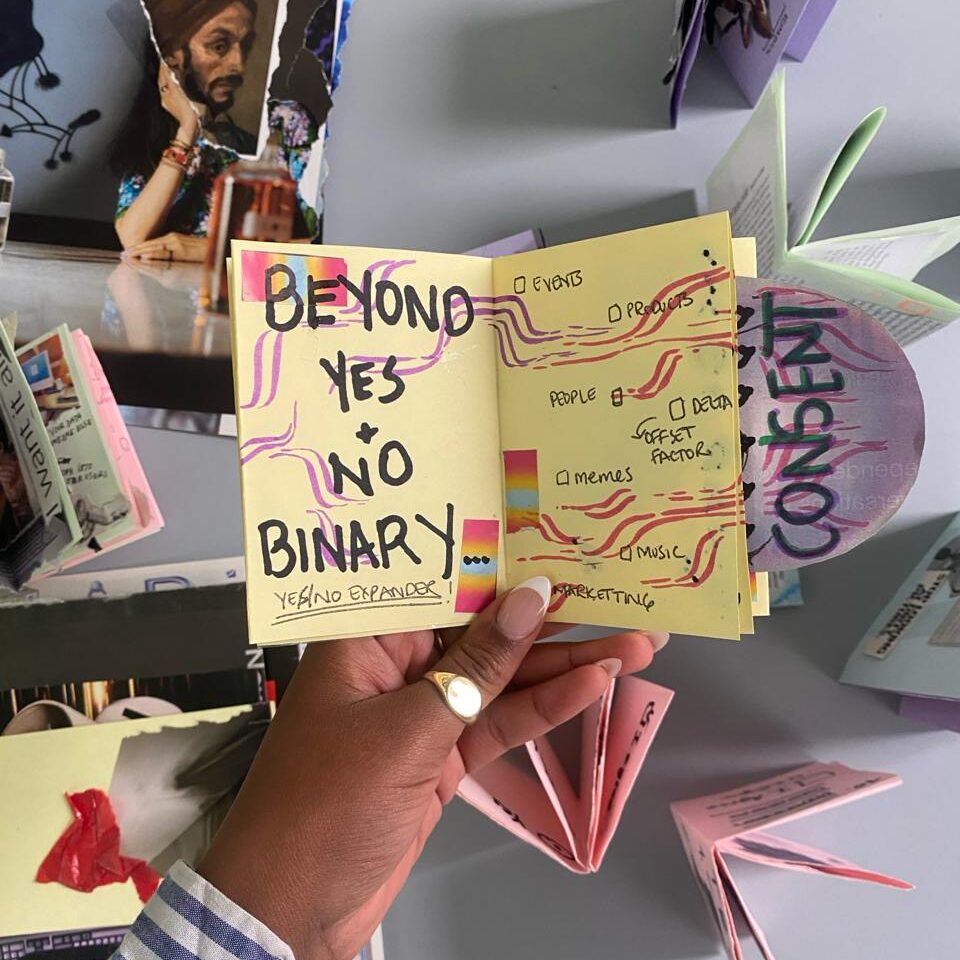
Identity 2.0
Identity 2.0 is a creative studio imagining better digital futures. Their work explores inclusive stories about our relationship to technology.
Since 2018, they’ve transformed research into creative mediums and playful knowledge spaces and have worked with Stop Killer Robots, The Royal Society, and Museum of London. They have also spoken at the World Wide Web Foundation, University of Oxford and University Arts of London about curating exhibitions, using art for social change, and creative entrepreneurship.
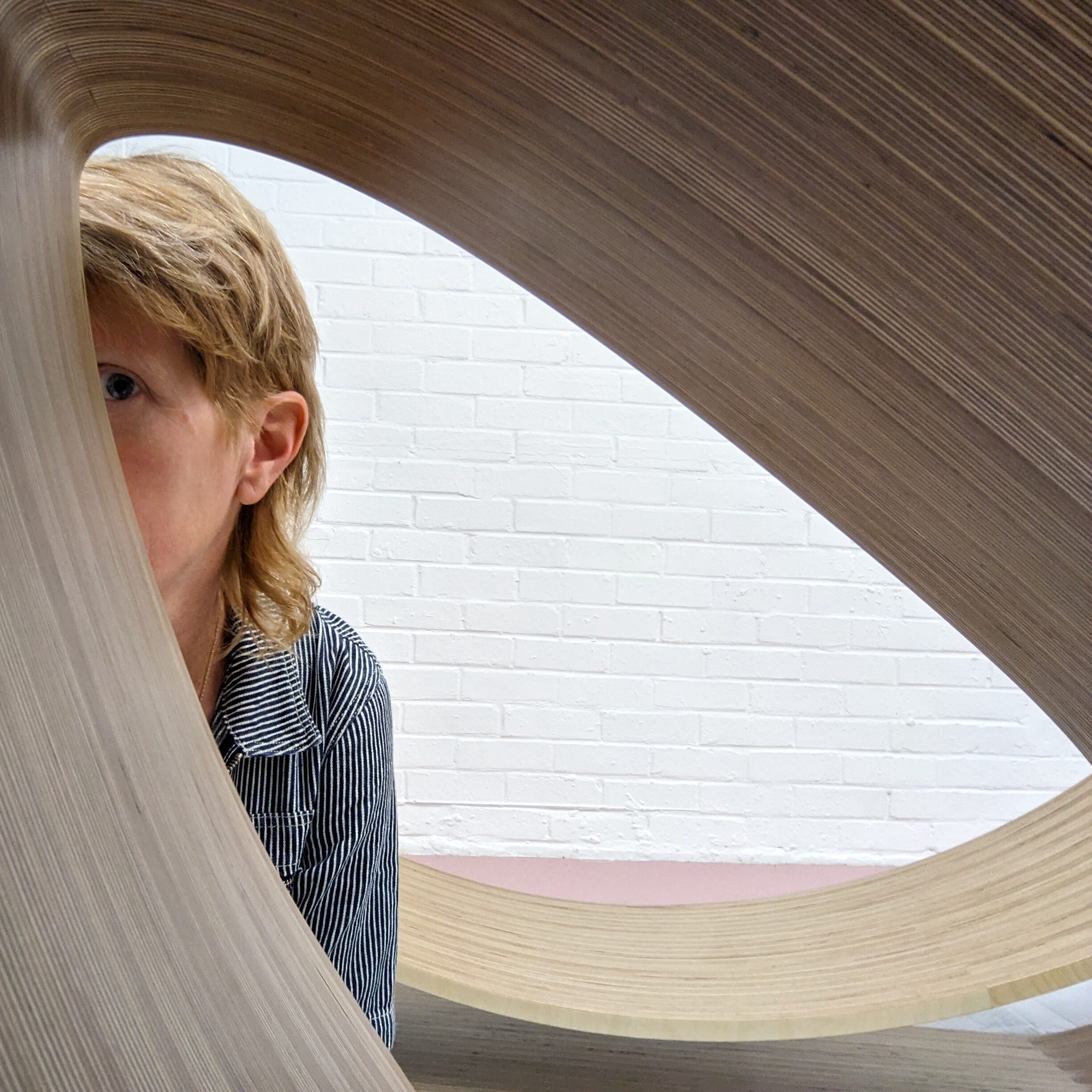
Julie Freeman
Julie Freeman works with natural living systems and emergent technologies. Her large scale installations, sound sculptures and online artworks have, since the early 1990s, pioneered her conceptual and critical approach to working with sound and real-time data as living and malleable art materials.
Julie has shown work at leading institutions including the V&A, the ICA, Modern Art Oxford, the Barbican and the Science Museum, as well as internationally. She has been recognised by many organisations including the BBC, The Guardian, and New Scientist.
Julie founded the Open Data Institute’s art programme ‘Data as Culture’ in 2012. She is a TED Fellow, co-founder of Fine Acts, and runs Translating Nature, a digital and data art studio.
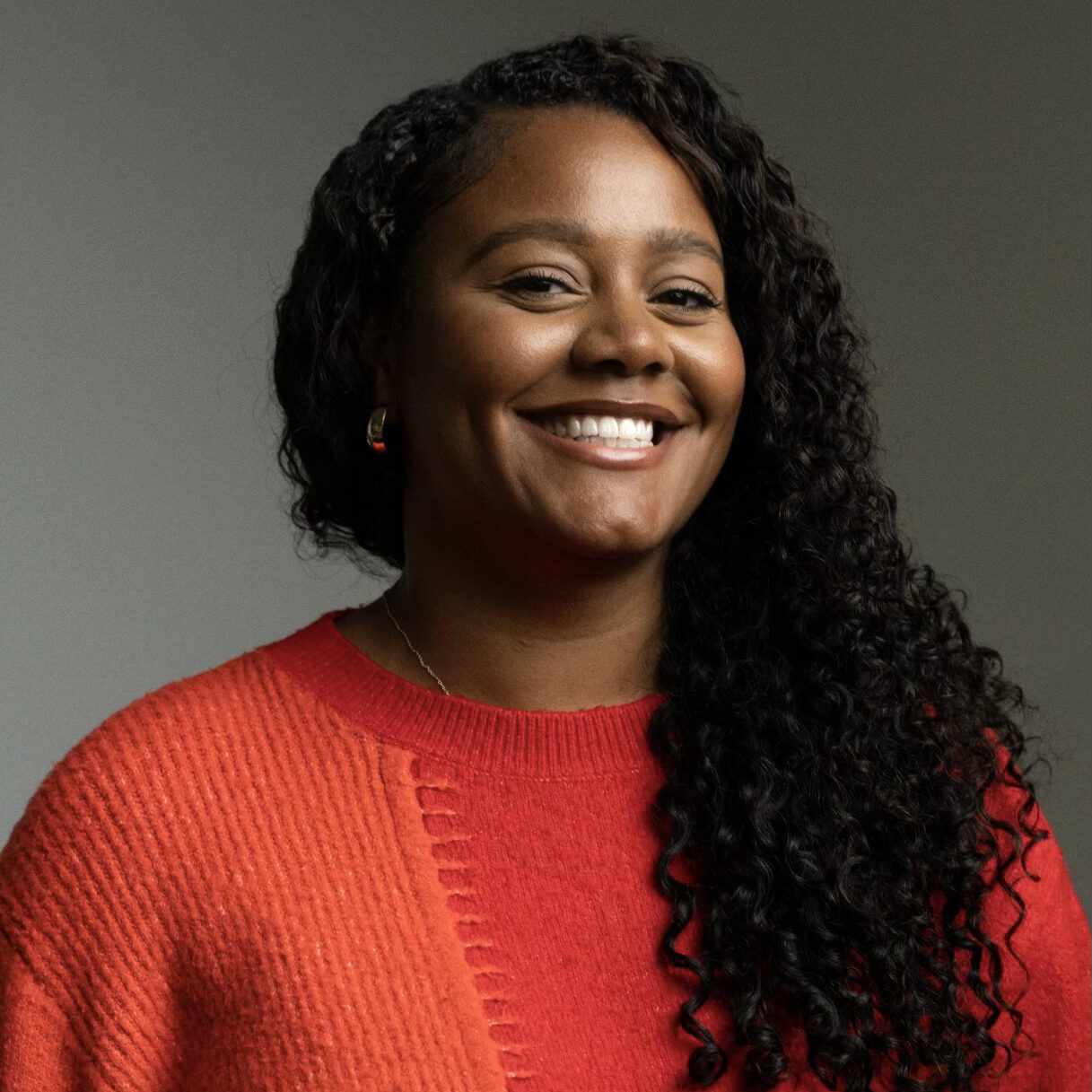
Kiki Shervington-White
Kiki is a visual artist and multimedia storyteller based out of Birmingham. She has a degree in Design for Art Direction from the University of the Arts, and over five years of experience in content creation for TV, film, and social media. Specialising in visual communication, Kiki uses her experience of public engagement in science, cultural organising and creative placemaking to explore the intersection of art direction and interaction design within communications, firmly believing that storytelling can drive positive change.
Kiki is dedicated to promoting equitable and inclusive creative experiences for all and takes a culturally responsive approach to producing engaging media that resonates with Black communities in the UK, in particular. She is committed to uplifting Black Women in their communities to ensure that everyone has the opportunity to participate fully in society.
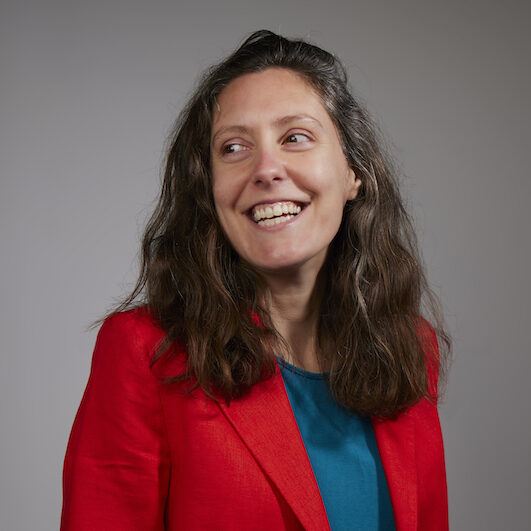
Louise Ashcroft
Speaking fiction to power, Louise Ashcroft’s work meddles with the bizarre logic of late capitalism and playfully addresses its social issues. Her recent film ‘What to Expect When You’re Not Expecting’ (2024) is a research-comedy foray into the fertility industry’s inequalities and her own queer journey to non-parenthood. A related project ‘No Kids Nursery Rhymes’ (2024-5) surveyed 180 childfree (by choice or otherwise) people, turning their complex experiences into catchy songs, which were sung by a choir of non-parents. In other work, Louise is anarchically redesigning St.Peter’s School Huntingdon in partnership with Wysing Arts Centre and hundreds of pupils who are making animated cardboard dioramas.
Past projects have involved guerrilla residencies in shopping centres, a generative storytelling coat with 50 pockets which turns feely trash into collectively improvised fables, and a collab with recycling plant workers in Exeter searching for the dark sublime of landfill by making glitchy e-waste instruments.
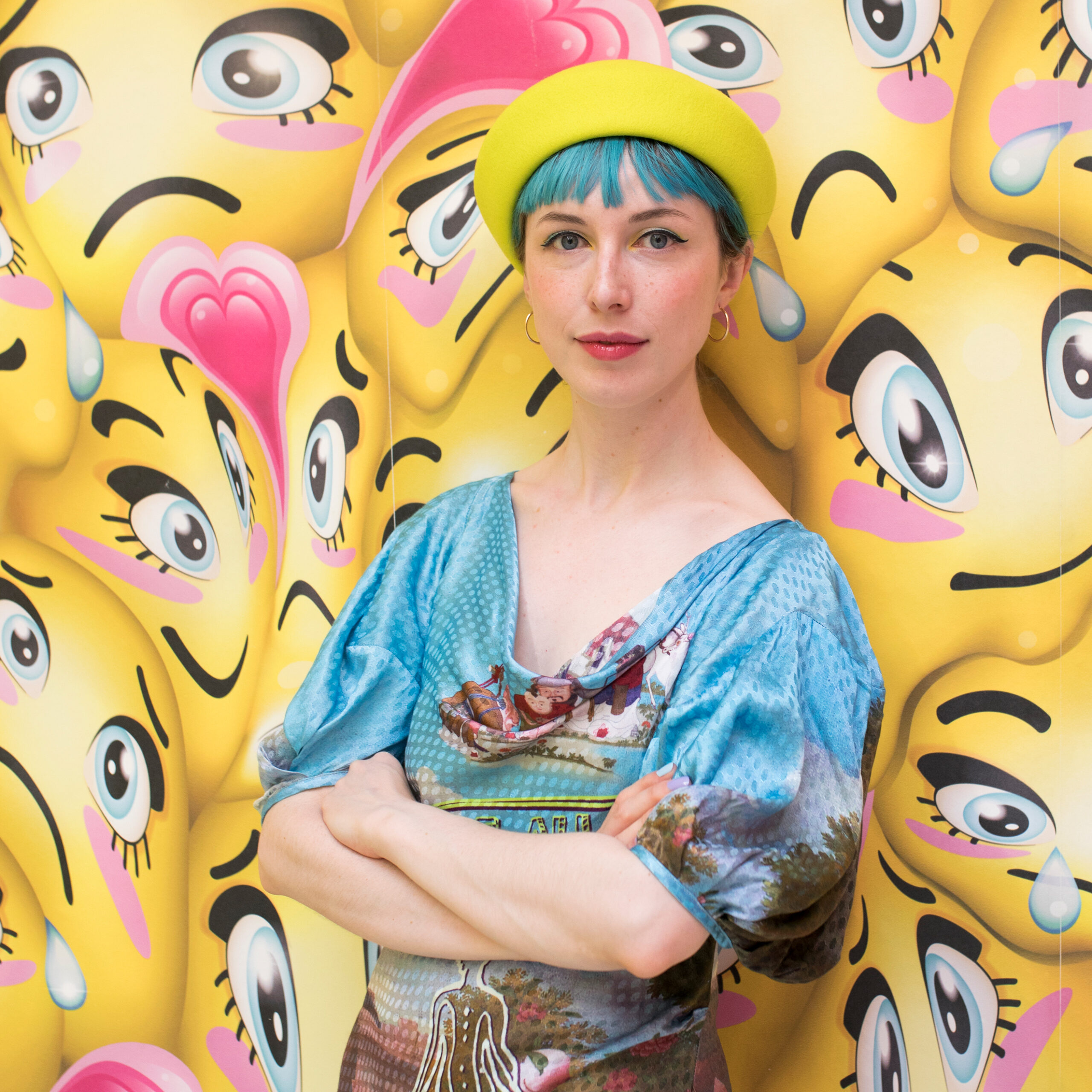
Rachel Maclean
Rachel Maclean has spent the last decade showcasing her ground-breaking work in galleries, museums, film festivals and on television. Working across a variety of media, including video, digital print, paintings and VR, she makes complex and layered works that reference politics, fairy tales, celebrity culture and more.
She has shown her work widely, both in the UK and internationally, receiving critical acclaim in the spheres of film and visual art. Her major exhibitions include solo shows at Tate Britain and National Gallery, London; Arsenal Contemporary, New York; National Gallery of Australia, Canberra; Kunsthalle zu Kiel, Germany; and KWM Art Centre, Beijing. Maclean represented Scotland at the Venice Biennale in 2017 with her film commission Spite Your Face.
In 2013, Maclean was awarded the prestigious Margaret Tait Award. She has been twice shortlisted for the Jarman Award.
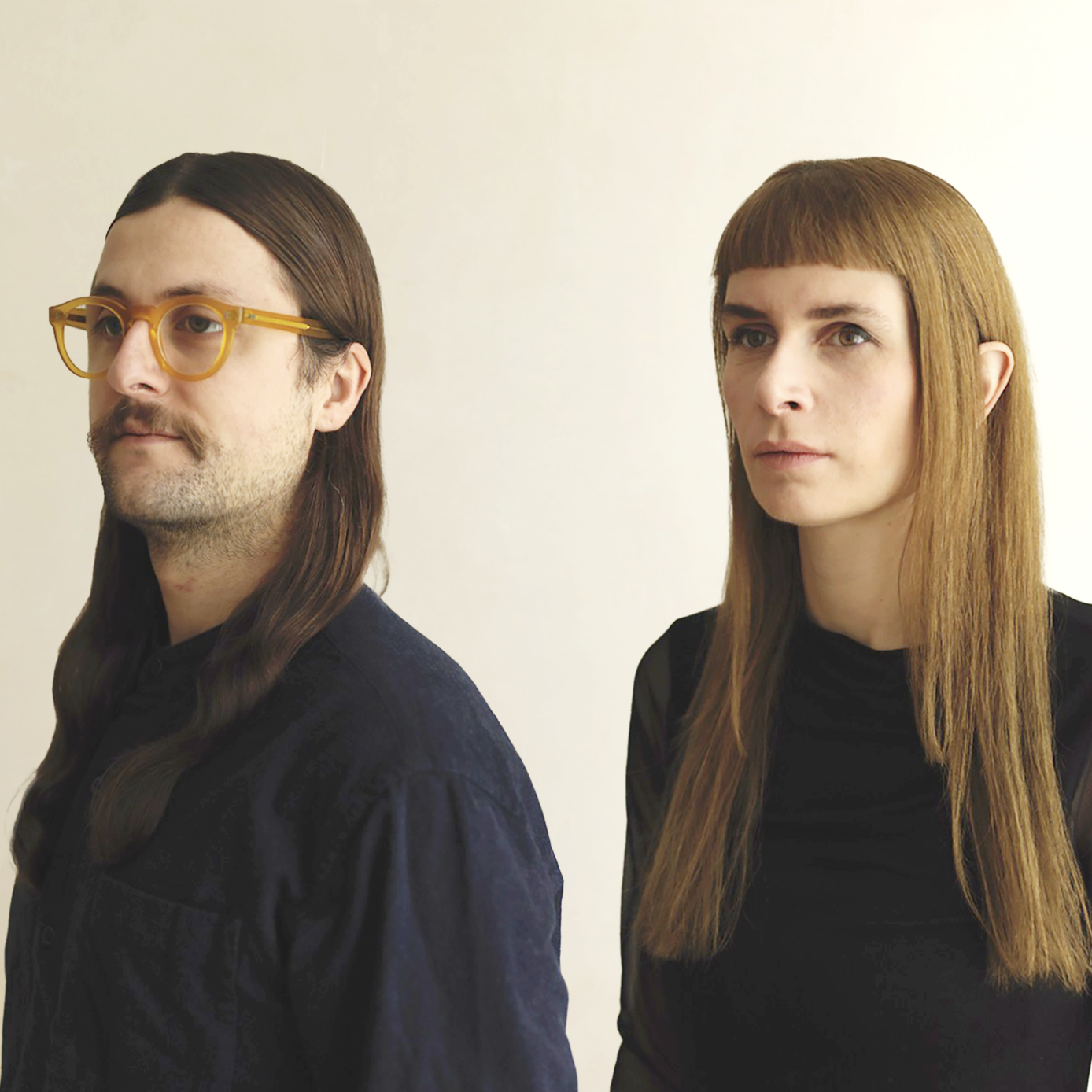
Studio Above&Below
Studio Above&Below is an award-winning art and technology practice founded by Daria Jelonek (DE) and Perry-James Sugden (UK) after graduating from the Royal College of Art. Grounded in research-based methodologies, their work bridges the gaps between humans, machines, and our umwelt, exploring how media art can foster more meditative, healing, and sustainable interactions with our surroundings.
Since its founding in 2018, the duo has specialised in creating immersive artworks that combine Mixed Realities (XR), digital art, and data systems to make invisible phenomena tangible, challenging predetermined technological structures. Their large-scale public artworks integrate advanced technologies, such as real-time environmental data and meditative scenography, to give our umwelt a voice and reveal the unseen.
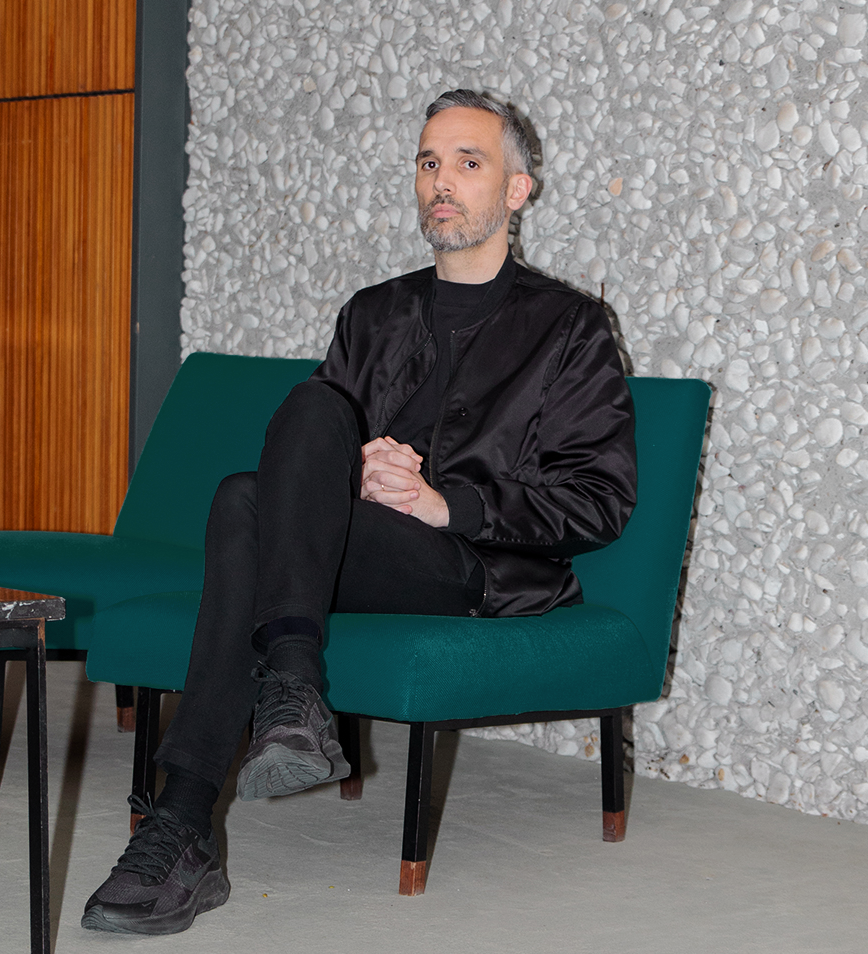
Wesley Goatley
Wesley Goatley is a critical artist and researcher based in London, UK. His work critically interrogates the myths and manipulations of the AI industry and its relations to society, geopolitics, and the climate crisis, and how art practice can intervene.
He has given talks on his practice and research at events such as Global Art Forum Singapore, the McLuhan Center for Culture and Technology in Toronto, CTM Festival Berlin, and the European Data Forum Eindhoven.
His installations, performances, and films have been shown at international venues including Eyebeam in New York, Berghain in Berlin, The Nam June Paik Art Center in Seoul, and the Victoria & Albert Museum in London. He has a 25-year practice as an experimental performer and musician, including work for labels such as Kranky (US) and Southern (UK).
The commissioned artworks, which range from digital installations to sculptural interventions, zines and comedy sketches, are set to address themes that reimagine AI uptake, inspire activism and resilience, and showcase artistic creativity in the field. These themes align with BRAID’s mission to build public awareness, break down structural barriers in AI, and reimagine responsible AI perspectives and practices.
The project will culminate in an exhibition based at Inspace during the Edinburgh Art Festival in August 2025, providing a platform for artists to share their visions and for audiences to reflect on the role of AI in our society.
Representing more than an exhibition, the project is a step towards better, more thoughtful conversations about the future of AI in our lives, and we look forward to working with the artists across the year to bring these conversations to life.
This art commissioning programme is funded by the Arts and Humanities Research Council (AHRC) and delivered by BRAID in partnership with Inspace at the Institute for Design Informatics, with support from Edinburgh Art Festival and Better Images of AI.
About BRAID
BRAID (Bridging Responsible AI Divides) is a 3-year national research programme funded by the UKRI Arts and Humanities Research Council, led by The University of Edinburgh in partnership with the Ada Lovelace Institute and the BBC. It is co-directed by Shannon Vallor and Ewa Luger, working alongside a team of co-investigators representing the breadth of the Arts and Humanities.
About Institute for Design Informatics
In the Institute for Design Informatics, we fuse design and creative methodologies with data, data science and data-driven technologies. We create prototypes and experiences that make real to people the ideas that underpin the data society, and aim to ensure that new technologies sustain and enhance human values.
About Inspace
Inspace is part of the Institute for Design Informatics and is a collaborative hub, commissioning and producing creative activity. Our public programme connects data, research and creative talent. We host events and exhibitions where people can explore, learn, debate and create. Our programme unlocks digital technologies, tools and data and explores their role in society through a creative lens. We are home to Inspace City Screens, a unique seven screen street front projection space visible from Potterrow in Edinburgh.
